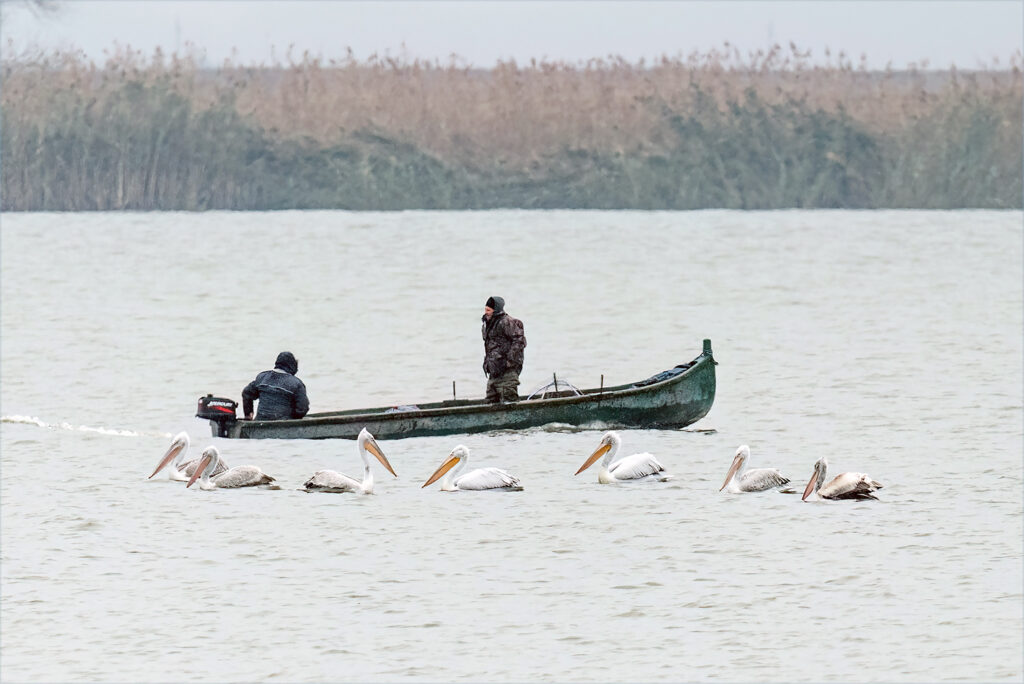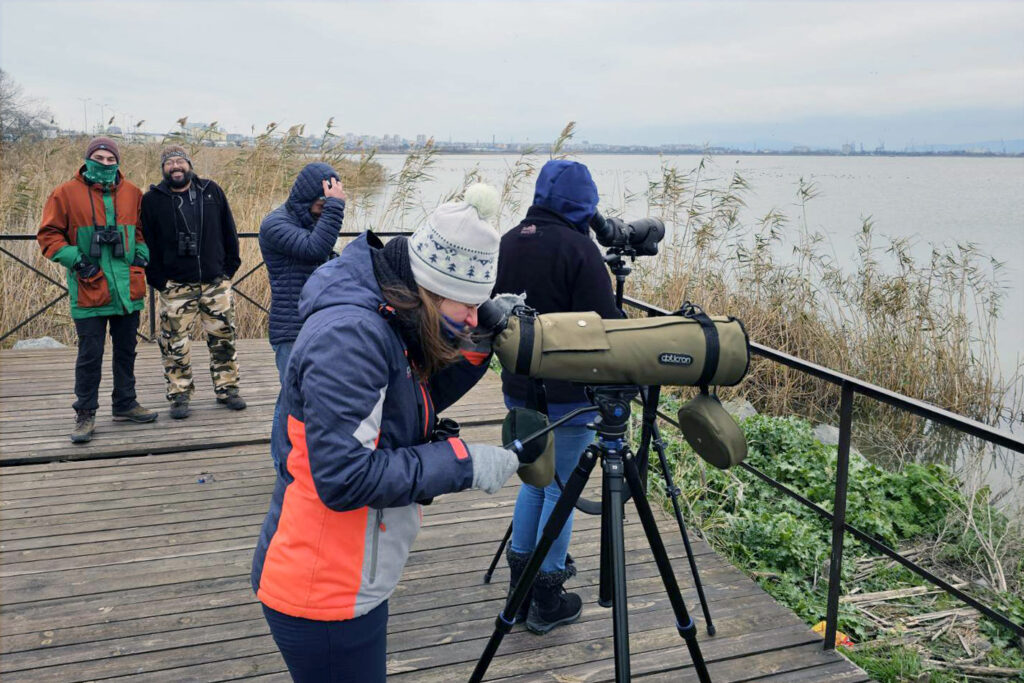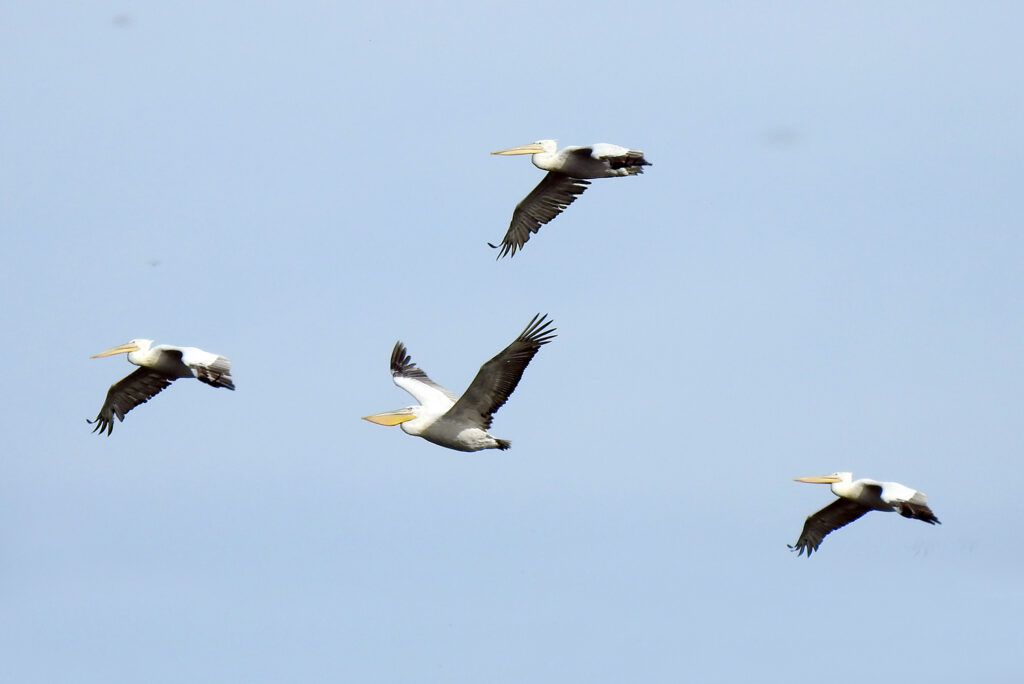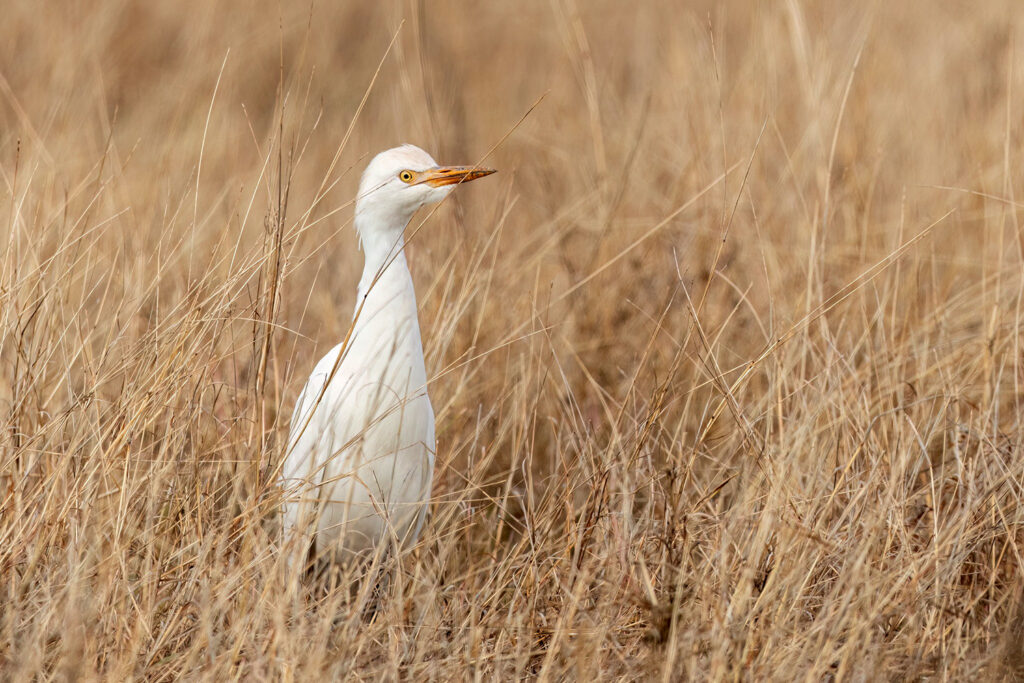An international census of wintering Dalmatian pelicans took place on the Balkan Peninsula in late November and mid-December. The purpose was to collect data on the number and distribution of endangered Dalmatian pelicans in the region.

The study occurred in two stages: the first in the Western Balkans (Greece, Albania, and Montenegro) at the end of November, and the second in Bulgaria and Romania’s wetlands from December 8-10. The events were organized as part of the “Pelican Way of LIFE” initiative.
Teams from the Bulgarian Society for the Protection of Birds (BSPB) joined the international effort, counting pelicans in crucial wintering areas in Bulgaria, including Burgas Lakes, Srebarna Lake, Ovcharitsa Dam, Rozov Kladenets, Studen Kladenets, Danube River islands, Varna Lake, and more. During the census on the Romanian lake Suhaya, opposite Persin Island (Belene), 192 Dalmatian and 8 Great White pelicans were observed.

In Bulgaria, a total of 644 Dalmatian and 93 Great White pelicans were counted. Comparatively, the 2022 census recorded 754 Dalmatian and 6 Great White pelicans, and in 2021, 1469 Dalmatian Pelicans and 48 Great White pelicans were observed. Burgas Lakes consistently had the highest number of Dalmatian pelicans (606 individuals), followed by Peschina swamp (23 individuals), Lake Srebarna (3 individuals), and protected area Yatata (3 individuals). The highest number of Great White Pelicans, which is 89 individuals, was again observed in the Burgas Lakes area.

During the counts, teams observed other rare and interesting bird species, including 4 Cattle Egrets (2 individuals in the area of the Romanian lake Suhaya and 2 individuals near the city of Burgas), Whooper Swans, Tundra Swans, 500 White-headed Ducks, 1 Red-throated Diver, 5 Horned Grebes, 60 Yelkouan Shearwaters, several White Storks, 13 Whiskered Terns, 3 Snow Buntings, and more.

The collected data will enhance knowledge and aid conservation activities for Dalmatian Pelicans in Southeast Europe. Cross-border cooperation remains crucial for the conservation of this species.
The actions are carried out within the framework of the “Pelican Way of LIFE“ initiative (LIFE18/NAT/NL/000716), coordinated by Rewilding Europe and funded by the LIFE Programme of the European Union and Arcadia Foundation, and with the assistance in Bulgaria of the Whitley Fund for Nature.